5200 people, including 2400 employees and 2800 users, from 62 nursing homes in the Algarve and Alentejo, started this Tuesday, the 17th, to undergo the serological test, which will determine the «prevalence of positive antibodies, 8 months after the vaccination' against Covid-19.
For 10 days, teams from the Algarve Biomedical Center (ABC) will run institutions, «from Vila Real de Santo António to Vila do Bispo, in Algarve, and from Odemira to Portalegre, in Alentejo», to carry out these tests. The serological study is voluntary and free of charge. A little prick on the finger to collect the blood and that's it.
The operation began yesterday, at the Sagres home of Santa Casa da Misericórdia in Vila do Bispo, with the presence of minister Ana Mendes Godinho, responsible for the Ministry of Work, Solidarity and Social Security. Results will be presented in September.
In statements to the Sul Informação, Nuno Marques, president of ABC, explained that what will be done are tests «to a group of elderly people over 80 years old, who are the people who are in the homes, and, at the same time, the employees of these homes, more young people', only including 'persons who have been fully vaccinated to date'.
The serological study, added that responsible, "will make the comparison of these two groups, since it is already known that the elderly always have a weaker immune system", being "often excluded from scientific studies", which leads to that there is “very little data on this population”.
In other words, this serological study will analyze the immunity of the most vulnerable elderly who have been vaccinated and compare it with that of employees who were given the vaccine at the same time.
The study is being conducted by the Algarve Biomedical Center (ABC) and by the Champalimaud Foundation, entities that have come together once again, stresses Nuno Marques, and which «have this ability to, within a month, put into practice a study with more than 5 individuals, whose resulting data will be presented before the autumn. With this, we will provide scientific data to the health authorities, which they will certainly join with others, for their decision-making on the pandemic for this autumn/winter”.
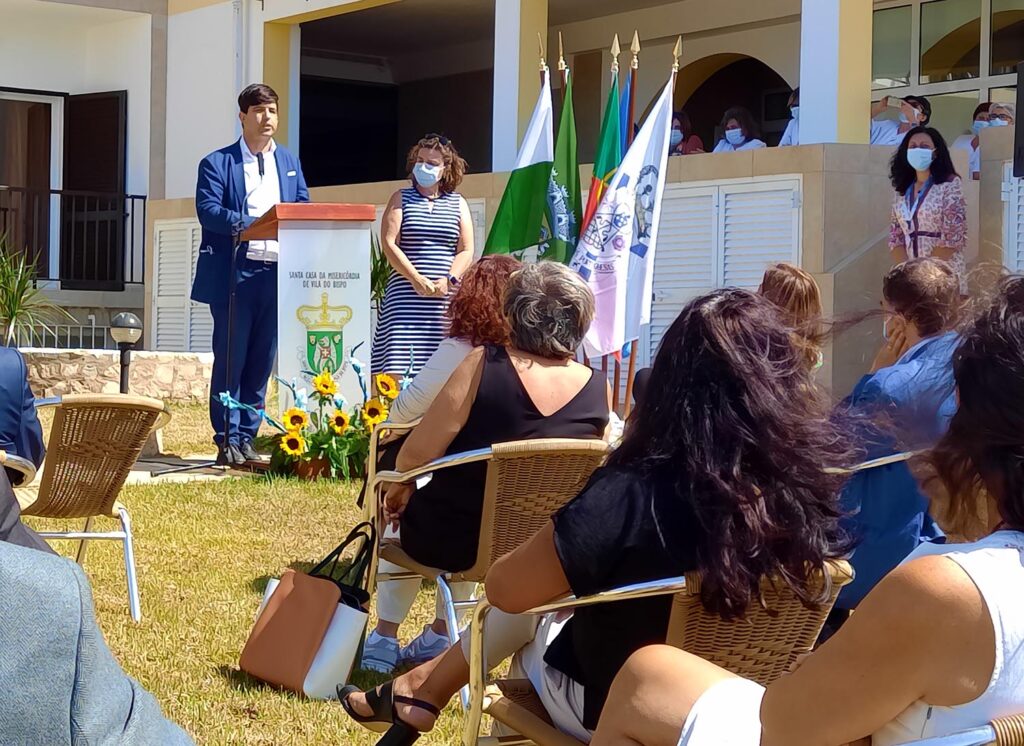
An important aspect is that this study is not only pioneering in Europe (and probably in the rest of the world), but its conclusions, the data it provides, may serve to help decision-making both in Portugal and in the rest of Europe. «The data from this study, with tests in homes in the Algarve and Alentejo, are very similar to those in the rest of the country [hence it is not necessary to test elderly people and employees from other regions], or even from other European countries, from homes in Spain , France, Italy'.
In practice, three subgroups will be tested: a first with people with two doses of vaccine, a second with people who had Covid infection and then only took one dose of vaccination, and a third group, that in which, after the first dose, people became infected with the new coronavirus.
From a scientific point of view, explains the physician and researcher who is president of the ABC, only about 700 tests would be needed to carry out this serological study in order to make it representative. But the decision of ABC and the Champalimaud Foundation was to significantly expand the sample, to a total of 5200 people tested.
All of this, according to Nuno Marques, «implies that, with this study, we are going to be able to answer several doubts about this older population, in relation to such subgroups. Hence, we have bet on such a high number, which is obviously more complex in terms of operation, it is more expensive, but it will provide us with much more data, which, as for the subgroups, will be robust data from a scientific point of view».
Armindo Vicente, provider of the Santa Casa da Misericórdia in Vila do Bispo, where the operation began yesterday, revealed that he is curious about the information that will result from this serological study. Because, he underlined, "we want to know the impact of Covid-19 on an ERPI like ours, which did not have a Covid reality", that is, where there has never been any case.
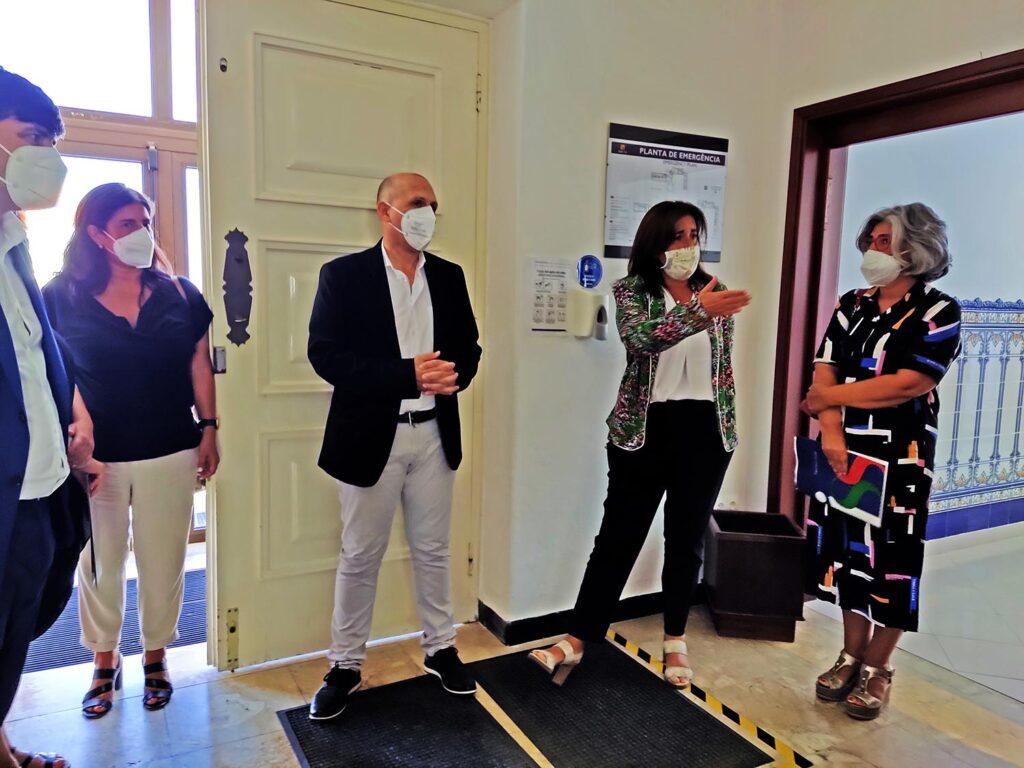
Regarding the doubts expressed by other specialists, who argue that the results of serological studies do not clarify immunity, nor do they serve to assess a possible third dose of the vaccine, the president of the ABC replied that the role of the study that began today «is not define whether or not there will be a third dose of the vaccine».
"It is to obtain and then provide scientific data, data that are currently unknown and that we do not have, about the population that most needs protection from this disease", the elderly over 80 years.
"This study is not intended, and I don't think it is possible with any other, to have data that are decisive, nowadays, for decision-making, whether it be vaccination or other protective measures" against Covid-19 , he stressed.
The objective is to deliver "these data to health authorities, so that they can use them as they wish, together with others, in their decision-making", explained the president of ABC.
And why choose the Sagres home for the start of the operation? Armindo Vicente gives the first answer: “because I had to start with Mercy”. But both Nuno Marques, minister Ana Mendes Godinho and mayor Rute Silva speak of the mythical dimension of Sagres, of his connection to Infante D. Henrique, who began the Portuguese adventure across seas never before navigated using science and knowledge. And the saga of the Discoveries itself, which went through “discovering things and answering questions, having doubts”, in the same spirit of curiosity and openness to the world that, deep down, characterizes researchers from ABC or the Champalimaud Foundation.
These first tests in the home of Sagres were accompanied by the minister, who insisted that the serological studies are just another project that continues «an innovative Algarve, always at the forefront, with many initiatives within the scope of this pandemic. your kick-off here».
One of these projects was the tests in homes, users and employees, which started in the Algarve region, by the hand of ABC. "In the last year and a half, 400 diagnostic tests were carried out across the country, which will have allowed us to avoid around 1000 outbreaks of Covid in homes," said the minister.
Addressing the heads of ABC – the body that brings together the University of Algarve and the University Hospital Center, represented there by the rector Paulo Águas and the administrator Paulo Neves – the government official wished that «your great capacity to inspire us for what we have to do and to respond with more and more quality».
Therefore, Ana Mendes Godinho exhorted: «May the Algarve continue to make history». "I'm counting on you for this permanent inspiration, but also an encouragement so that we never lower our arms."
Rute Silva, mayor of Vila do Bispo, welcomed the start, precisely in Sagres, of “a new phase of the national strategy” to combat Covid-19. Turning to the employees of the home, he classified them as "warriors" who have taken the front line in this struggle that has been going on for a year and a half.
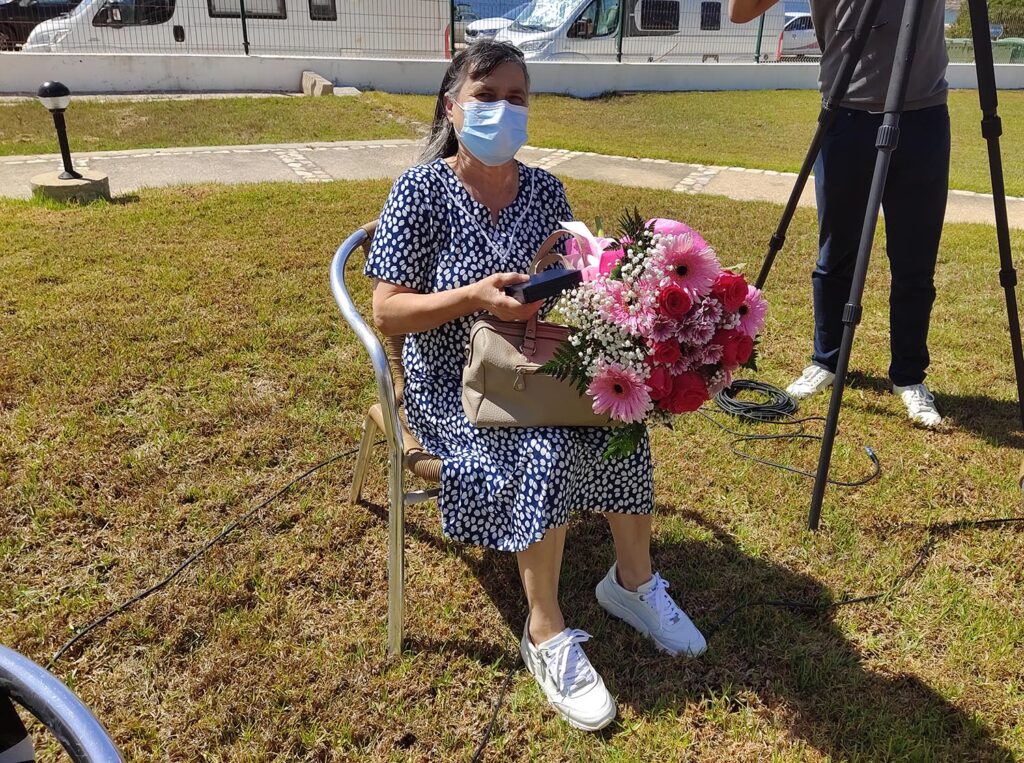
The host for the start of the serological studies was Armindo Vicente, provider of the Santa Casa da Misericórdia in Vila do Bispo, but also president of the Secretariat of Misericórdias do Algarve. The official stressed that “the tests are the continuation of a process”, stressing that the word that came to him was “gratitude, gratitude that is the voice of the heart”.
In a home with 61 users and almost 60 employees, the presence of the minister of Social Security was used to honor an employee who has now retired, after 39 years of work in that institution. It is Mrs. Rogélia Lopes, who received, from the minister's hands, a bunch of flowers and the Mercy Medal.
«D. Rogélia opened this home and symbolizes all the employees who gave and continue to give their all for the well-being of our users», stressed Armindo Vicente.
But the surprises did not stop there. Behind the provider were seated D. Senhorinha, Senhor Joaquim and D. Amélia, "who represent an entire institution, without them we would not exist."
Even further back, as the backdrop for the outdoor session, blown by the incessant wind from Sagres, on the balconies of the home facing the sea, users held up handmade posters with six words in bold letters: «We are happy here, thank you for your visit". The word “visit” took longer to be shown, with the provider joking, saying that things were done there at the pace of the elderly, so no rush.
Afterwards, Ms. Senhorinha, who, in addition to being a user, is part of the governing bodies of Santa Casa da Misericórdia, offered some "little treats" to the minister and guests, having also given a short speech to thank the fact that "they started with this home". "We are very far from the capital, but we are people too," he said, in a highly applauded tirade.
It was a different and hopeful way of kicking off this pioneering serological study.
«By the 27th, we will have the data of 5200 people collected and ready to be analyzed. In September, we will make the presentation at the Champalimaud Foundation, in Lisbon», concluded Nuno Marques, president of the Algarve Biomedical Center.
Photos: Elisabete Rodrigues | Sul Informação
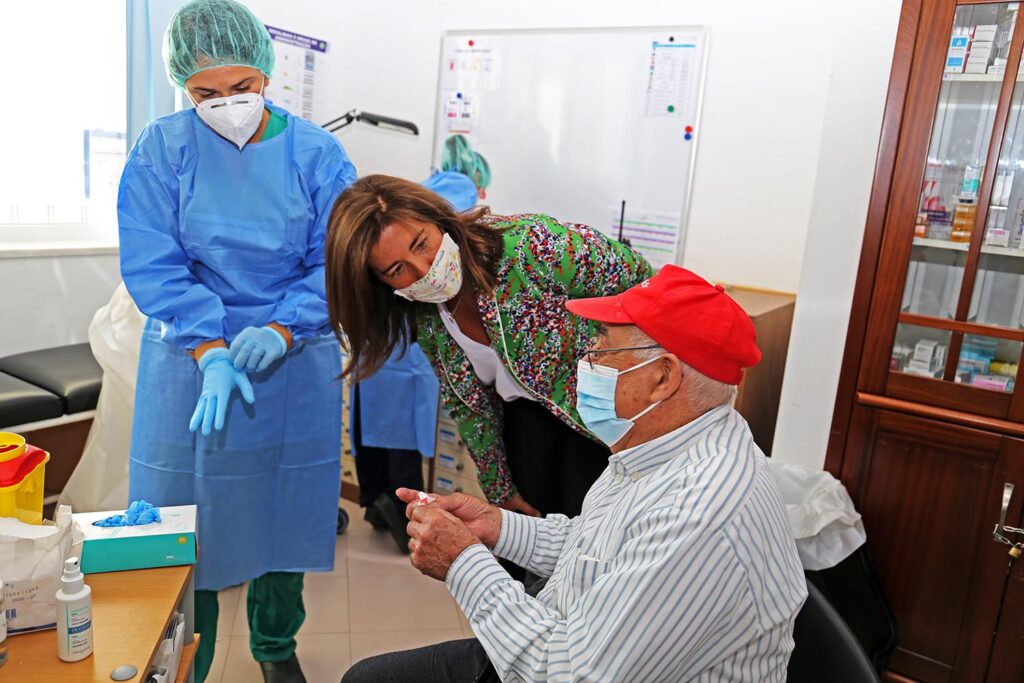
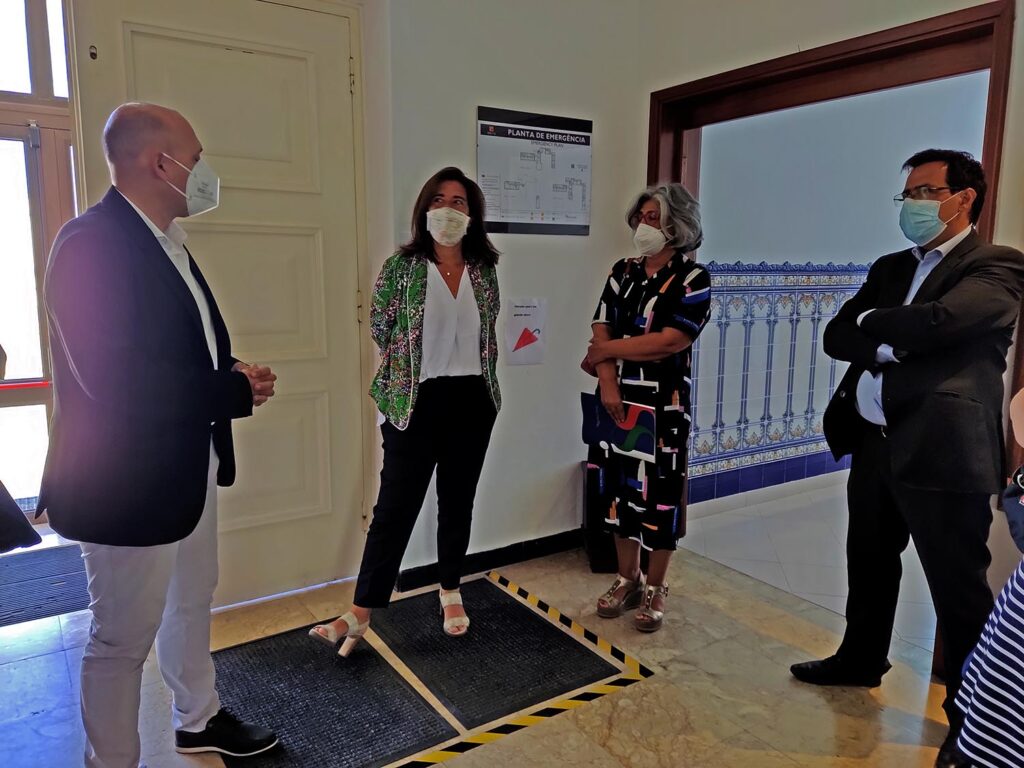
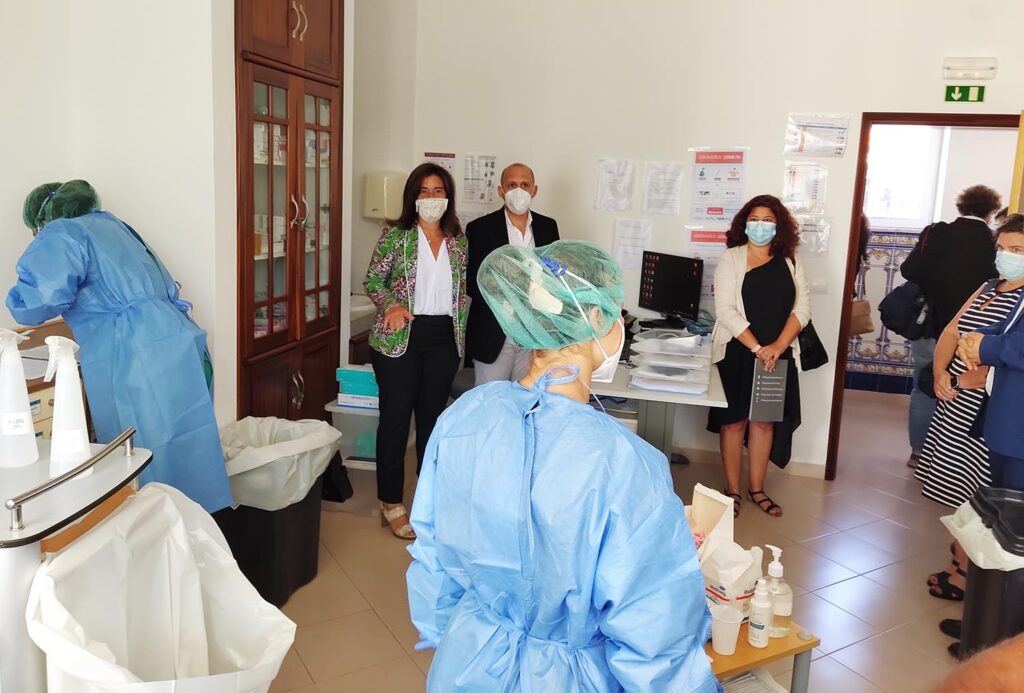
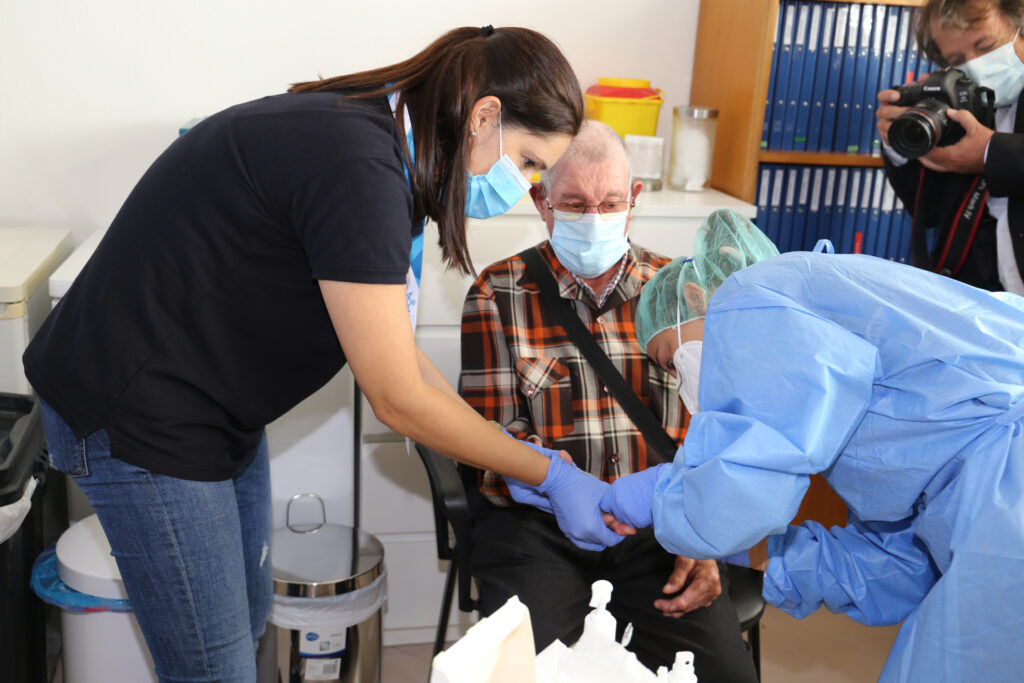
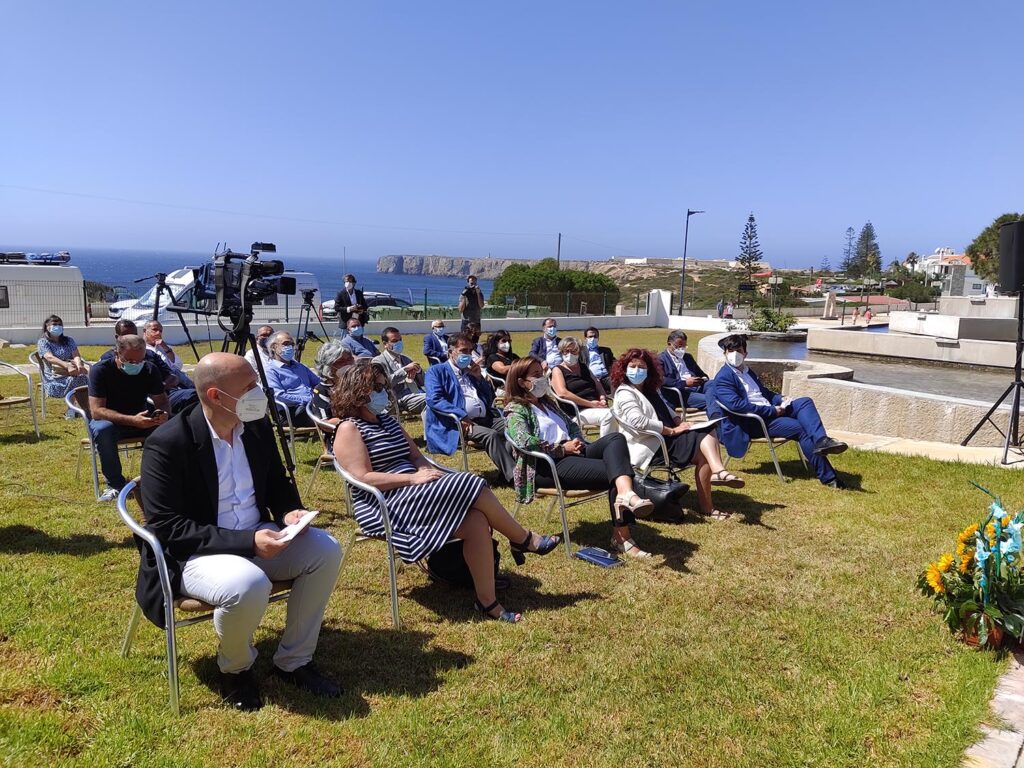
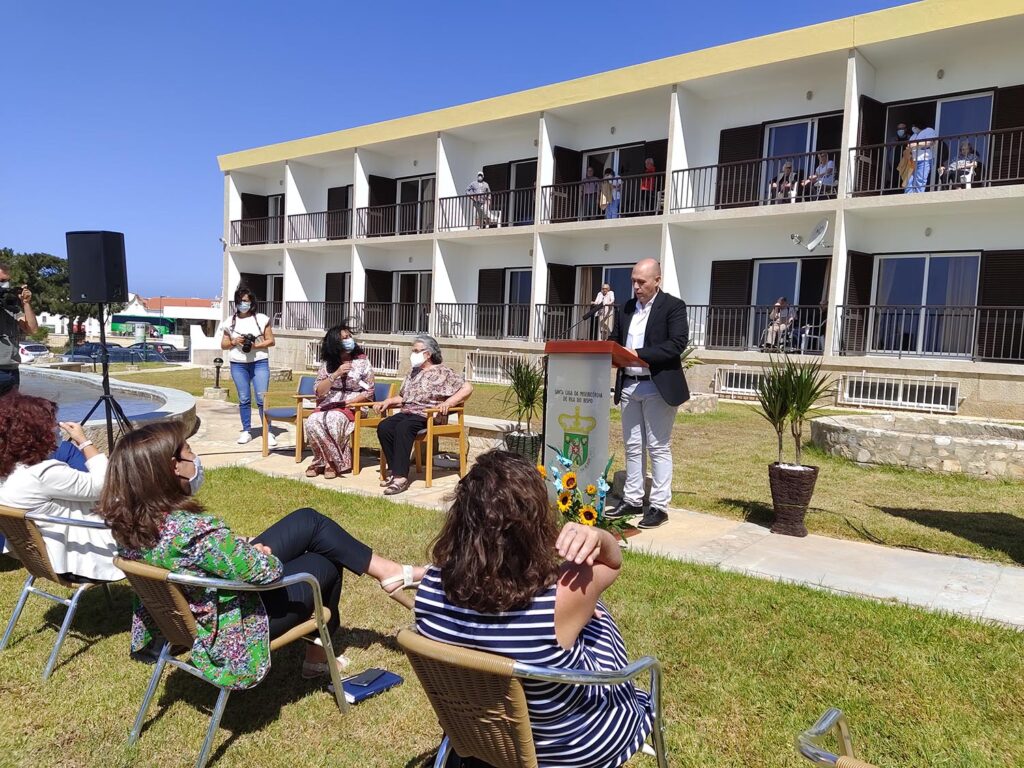
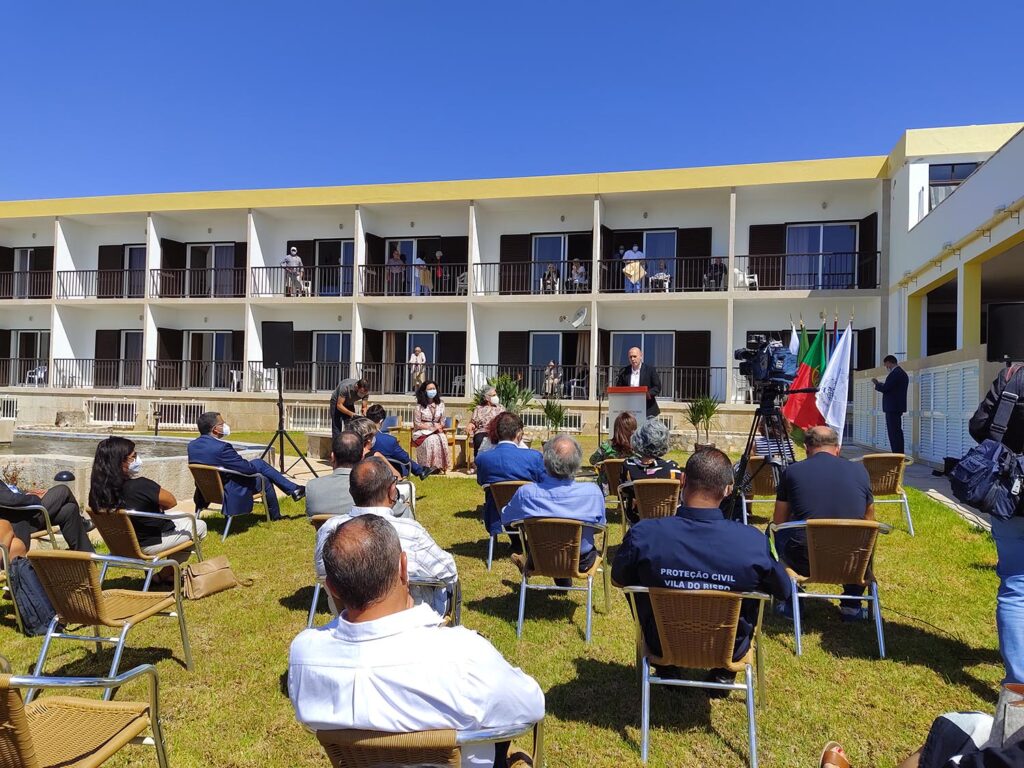
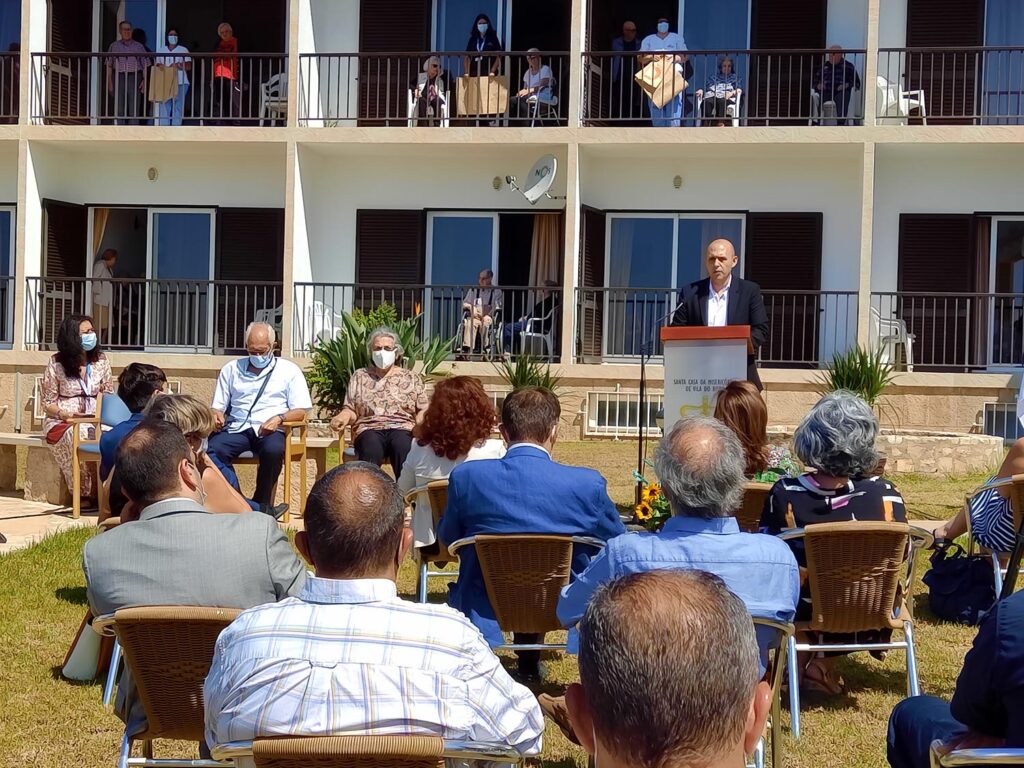
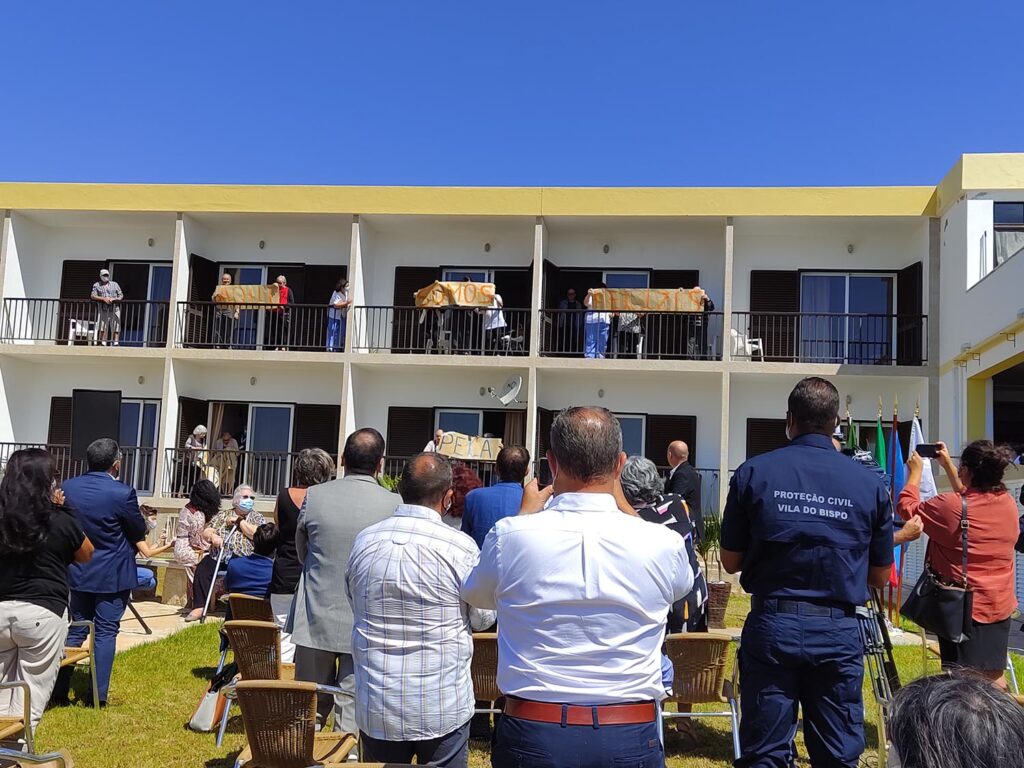
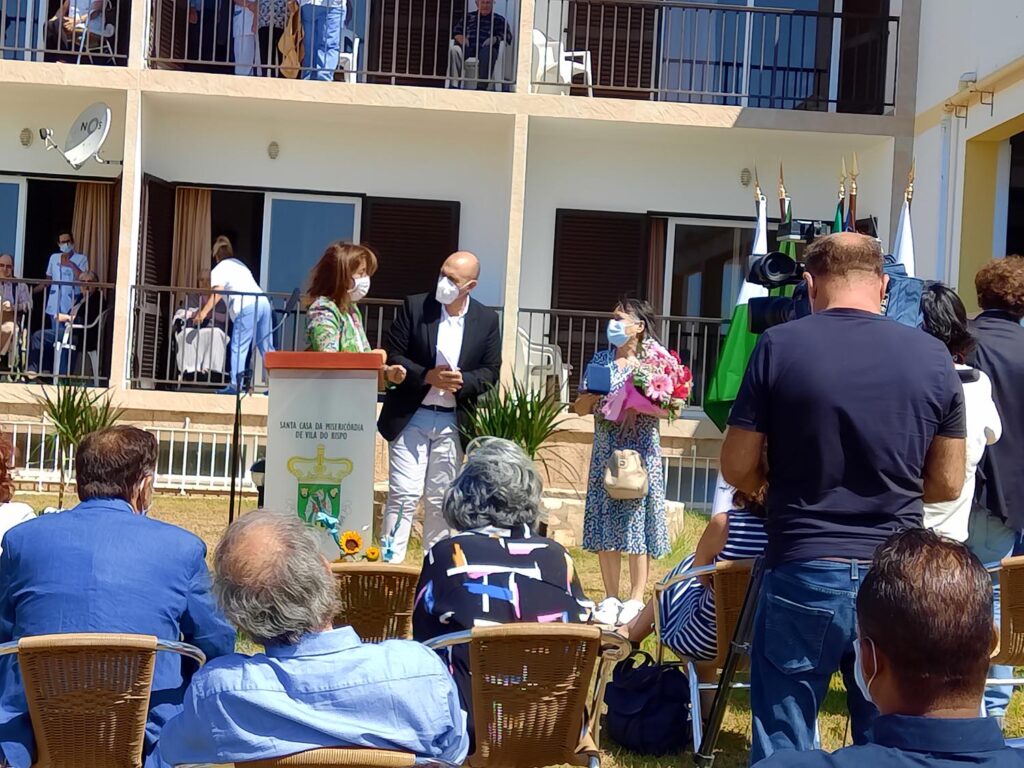
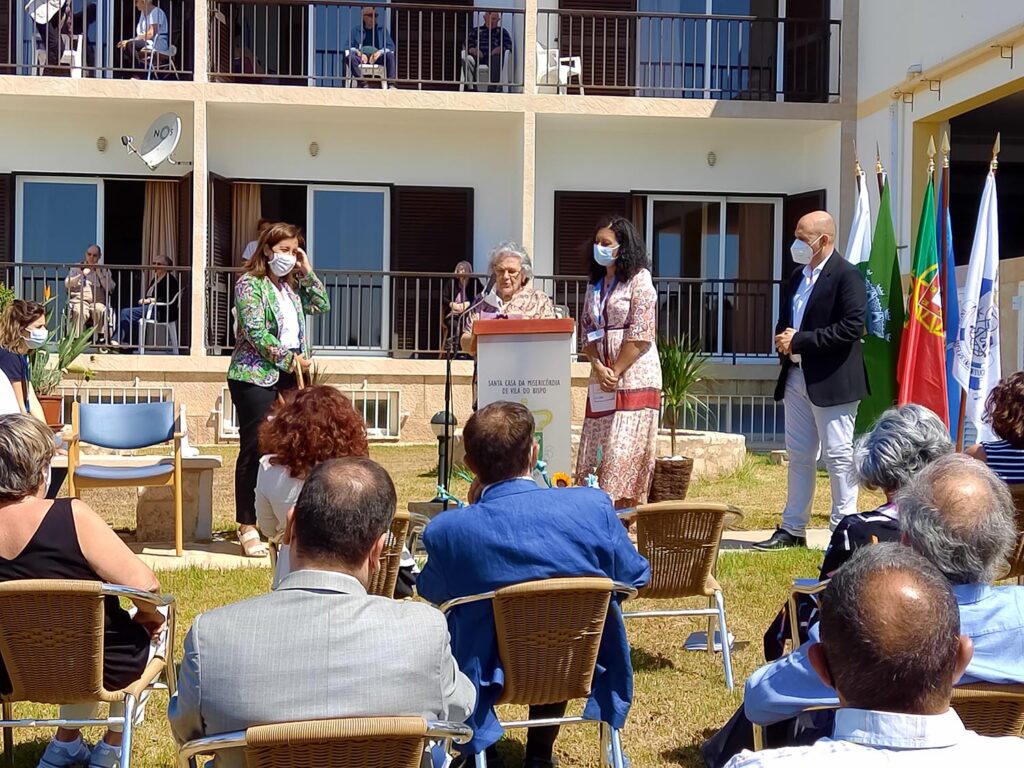
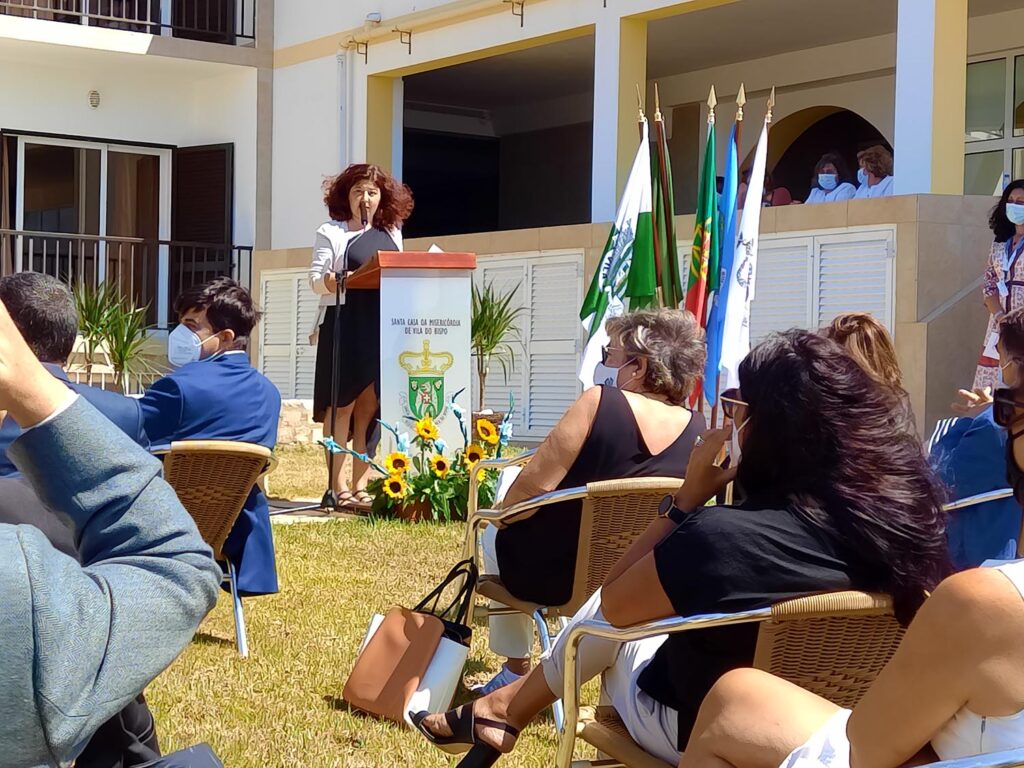
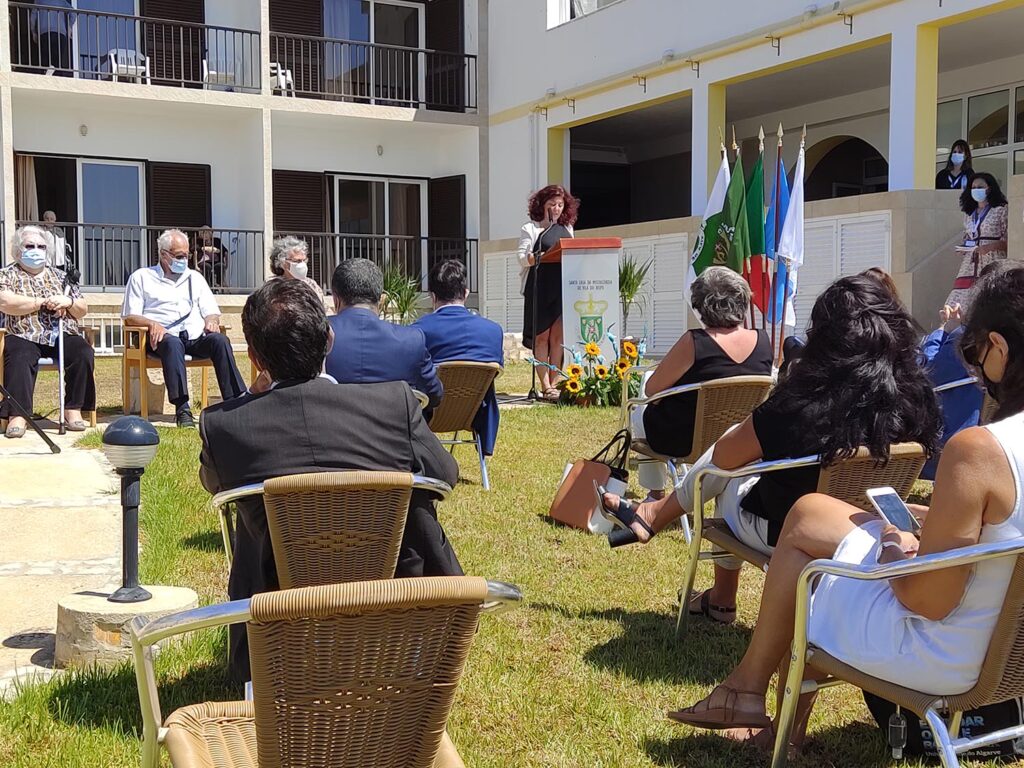
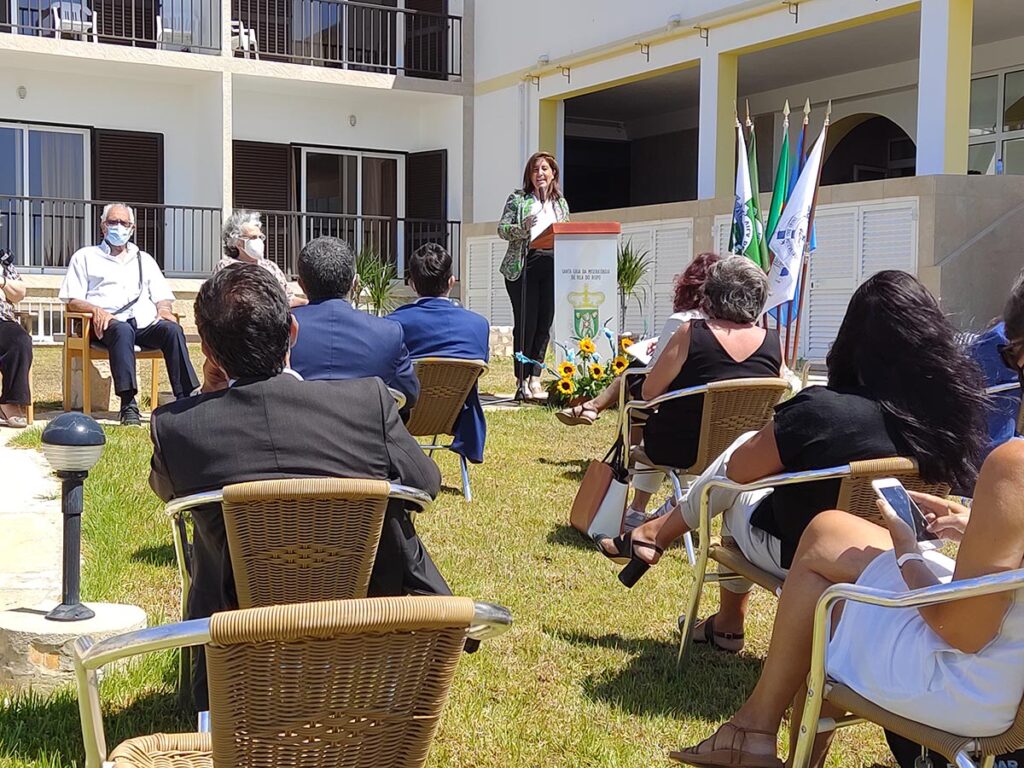
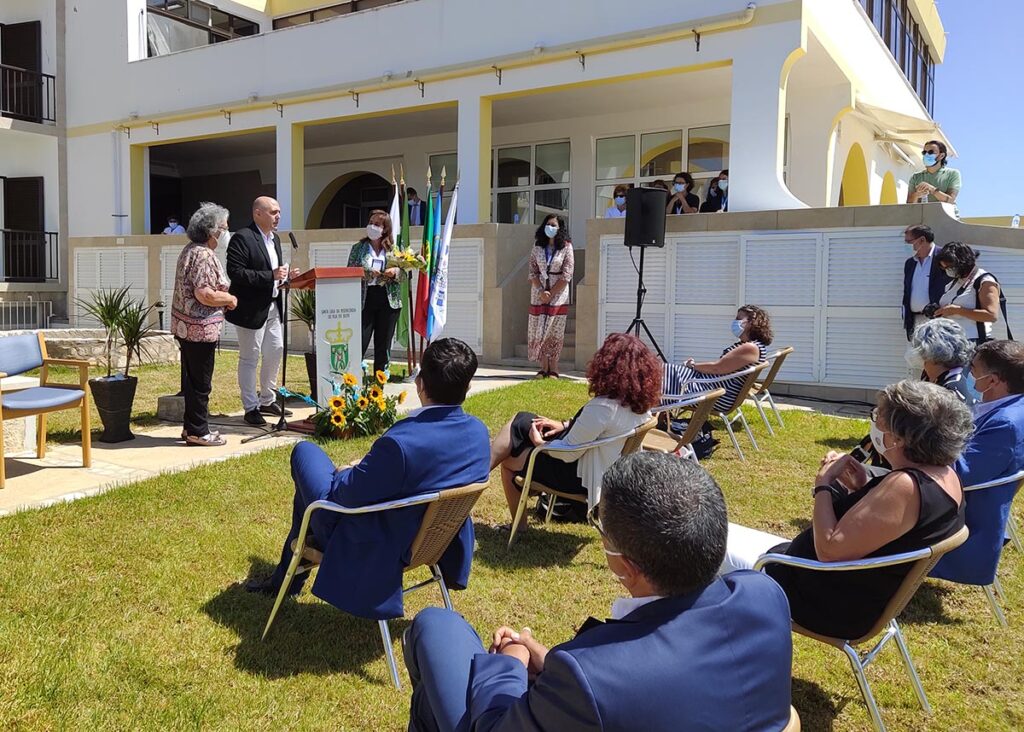
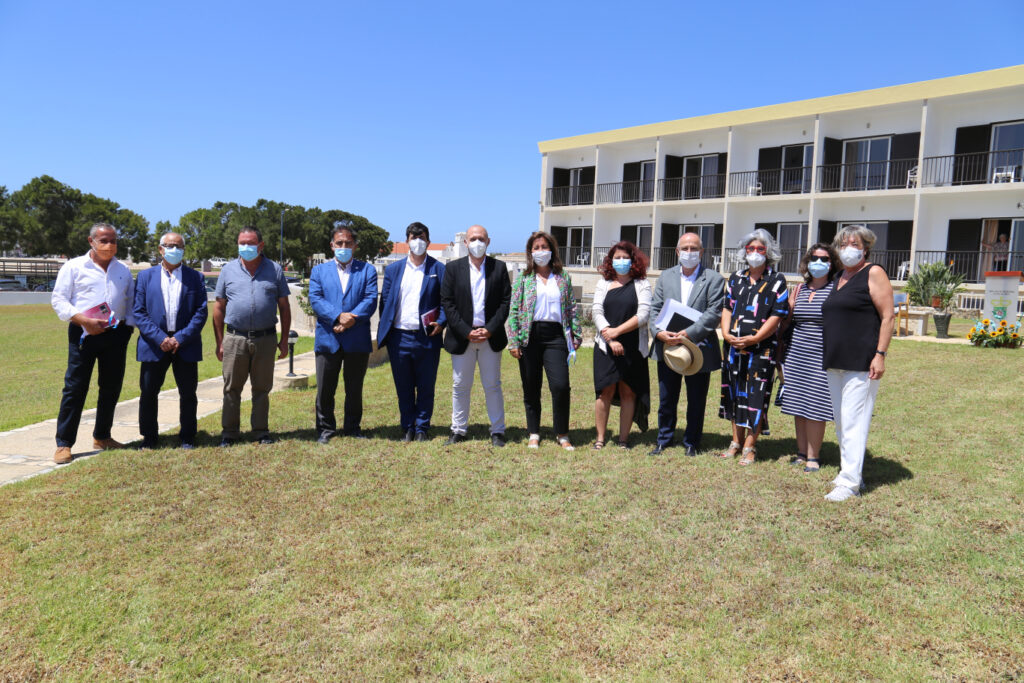


















Comments